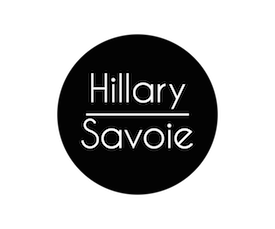This weekend one of my cousins (I was about to say “little cousins” but I guess she is no longer little) celebrated her bat mitzvah. We had hoped to go as a family, but given Esmé’s recent hospital stay it just wasn’t feasible. So, I traveled with my mom and step-dad and left Ez behind to hang with Papa. It was, I think, the right choice considering that Esmé spent almost the entire day sleeping…
The service was in a beautiful temple along the river just outside of New York City. My not-so-little cousin looked so poised and beautiful in a perfectly age-appropriate dress. She stood below a large sun-filled transom window and against a back-drop of a quote from The Song of Songs “For, lo, the winter is past, the rain is over and gone; The flowers appear on the earth; the time of the singing of birds is come.”
Within a matter of minutes I was feeling teary.
I was not raised to be religious, I was never taught to pray. I grew up in some space between religions. My parents both attended church as young people, we celebrated Christmas and Easter in the way of many non-religious Americans. And as a young girl I was welcomed into a family (my step-father’s family) that is Jewish. My mother converted to Judaism when I was in college. Parts of my extended family are practicing Christians. I also have a brother, who joined our family as an adult after moving here from Africa, who is a practicing Muslim. So while I am not religous, I am surrounded by a variety of spiritual beliefs…and very many people who pray for Esmé in their own ways.
I was feeling teary in Temple because while I am inherently skeptical of religion, I am not skeptical of faith. Whenever I visit a place of faith that is filled with honesty and joy and love, I get a bit overwhlemed. This is especially true since having Esmé–since wishing I had some way to make sense of everything that has happened. I find some kind of fleeting hope there, but it is truly the hope of others. I do desire the feeling with which my loved ones tell me they pray for Esmé–their certainty that their prayers are heard. It isn’t clear to me how one claims that hope…how one knows the right place to find their own faith inthe absense of some kind of birth-right. At the same time words like those from the Song of Songs feel like they were written for me, like they should lift some of the anguish of these last few years off of my shoulders.
So much of the service on Saturday touched me in this way–through poignant words meant to offer clarity in difficult times. I also felt such sense of hope that these were the words my cousin was receiving, guiding her forward in to adulthood. I was so proud that these words were about questioning authority, about nurturing empathy, and celebrating self-knowledge.
On Saturday as I watched this room celebrate my thirteen-year-old cousin, as I listened to her mother (my dear cousin Wendy) talk publicly about the amazing qualities she sees in her daughter, it struck me that every child needs this kind of public affirmation of what is good and unique in them. A sort of laying out of the road before them, an embracing of their budding ability to make choices for themselves and a reminder of the things that we, as their community, hope will inform those choices–love, independence, faith, hope, truthfulness, compassion. It is an act of preparing them for the world.
In a way, what I do here is a similiar but complementary activity–a form of religous practice–an affirmation of what is good and unique about my own daughter. But instead of preparing her for the world, I feel I am preparing the world for her. This affirmation of Esmé lays out my hopes and desires for how her community will greet her, that they will see what I see in her, not as a reminder to her to always carry it with her, but as a reminder to others to carry it with them…to hold her blessings for her, with me, with hope.

